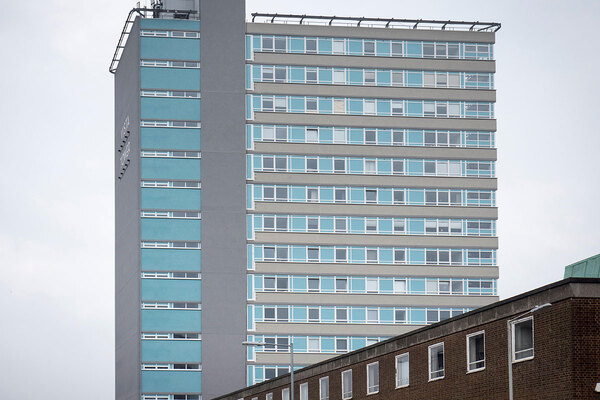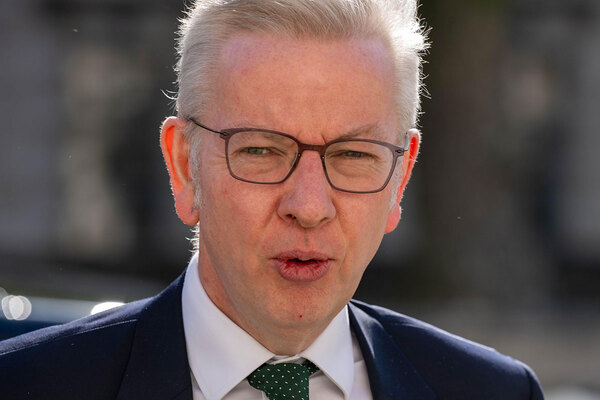Jack of all trades
Former trade union boss Jack Dromey spent years campaigning for people’s rights. Now he is rallying once more. Rhiannon Bury meets the junior shadow housing minister to find out if entering front line politics means leaving the picket line behind.
Jack Dromey is jet-lagged. The junior shadow housing minister has just returned from spending the New Year in India with his wife, deputy leader of the Labour Party Harriet Harman, holidaying for the first time since becoming MP for Erdington, Birmingham last May.
Despite travel fatigue from his 18-hour journey home, Mr Dromey’s eyes light up as he describes the colours and vibrancy of his Indian experience. Clearly moved by his time there, he recounts seeing two men sitting on the side of the road with all their worldly possessions in their laps. ‘They were absolutely filthy and looked just totally crushed,’ he recalls. ‘I found that very difficult.’
He has landed back in Westminster with a bump on a cold, January afternoon, where he must deal with difficulties much closer to home. When we meet, the second reading of the Decentralisation and Localism Bill is looming and councils across England and Wales are making swingeing cuts. Only days previously, several more councils announced huge job losses, many of which could be in housing, with 1,500 people at risk in Kent, 2,000 in Bolton and 740 in Bristol.
As thousands of Mr Dromey’s former union members stand in the firing line, it would seem there has never been a better time for the straight talking former deputy general secretary of the Transport and General Workers Union to use his new influence to champion their cause. It remains to be seen whether or not he will be able to perform this role. Despite being a veteran political activist, he is a relative newcomer to front line party politics and the compromises that accompany the role.
So, how does Mr Dromey plan to rally the Labour troops into action against the greatest cuts to local authority and housing spending in decades?
Activist politics
Known for his preference for action over rhetoric, 62-year-old Mr Dromey’s career to date reveals a talent for getting his voice heard. In 1974 he was one of five people who organised the occupation of London’s Centre Point tower block, empty for years after construction, to highlight the problem of homelessness.
‘It seized the public imagination,’ Mr Dromey enthuses. ‘We took over Centre Point for the weekend to demonstrate the obscenity of the contrast between office block speculation in central London and housing and homelessness in London.’
Mr Dromey kicked off his career in the 1970s, and first tried to stand for election in 1997 but failed to get shortlisted before standing again in the Birmingham, Erdington safe seat last year, making him a late addition to the Commons roll call. Previously, he was treasurer of the Labour Party, and caught up in a number of high-profile financial scandals, including the ‘cash for honours’ incident in March 2006.
Mr Dromey, then party treasurer, stated publicly that he had no knowledge of or involvement in loans made to Labour by three individuals who were subsequently nominated for life peerages, and retained his position until entering parliament in May.
Perhaps his relative infancy in his role as an MP explains why his office in MP’s office block Portcullis House is oddly bare. There are a few choice mementos to brighten the space - all with a trade union theme - but otherwise the room is stark. Sitting casually in a comfy, black chair and sipping coffee from a cardboard cup, he points to a drawing of the strike at the Grunwick film processing laboratory in 1974 where he met his wife at the picket line. ‘That’s me, against a wall of police,’ he says with pride.
Although he has moved on from union activism, he seems determined to cling on to his roots and principles - including those developed as a housing activist.
‘We [Labour] are a movement of community and co-operation,’ he says. ‘I was an active trade unionist, but in my community I was also secretary of the Brent tenants’ and residents’ association, which represented 24,000 households. My background is a history of grassroots activism in the world of work, and in the field of housing.’
Building on experience
On the topic of housing, Mr Dromey’s frequently expressed view is that there is not enough of it. He is acutely aware of the shortfall in decent social housing for his constituents in Birmingham, Erdington where there are 30,000 people on the housing waiting list, and concedes that some of this is Labour’s doing. ‘I’m proud of what we did, but we didn’t do enough,’ he says. ‘In particular we didn’t build enough council houses.’
A champion of house building, Mr Dromey argues that there should be investment rather than cuts. ‘What we need at a time when recovery is still uncertain is to continue to invest in housing because that not only meets need, it also creates jobs and growth in the economy and along the construction industry supply chain,’ he says. ‘Our approach would be very different from the [coalition] government - we believe that you grow the economy out of recession, and house building is a classic example of how you invest to grow.’
Mr Dromey is a familiar figure to housing campaigners. Henry Gregg, acting head of campaigns at the National Housing Federation, echoes the politician’s call for more new housing, and cites a close past working relationship with Mr Dromey when he was deputy general secretary at Unite. ‘He campaigned for greater housing provision. He’s a rising star within the Labour Party and should be able to give the push that’s needed to get housing and planning the attention it deserves,’ Mr Gregg adds.
Others in the sector are more circumspect about Labour’s housing rhetoric. Keith Exford, chief executive of 55,000-home housing association Affinity Sutton, says the shadow housing team is struggling to find its place in the whirlwind of coalition policy announcements.
‘What we get is the reaction from the latest proposition from government, but I haven’t seen any concerted effort to give an alternative,’ he adds. ‘We need the opposition to be robust about some of the suggested changes, and it needs to be loud.’
Combatting cuts
Mr Dromey is certainly loud in his opposition to the cuts to council budgets outlined in last October’s comprehensive spending review. The union GMB estimates that the total number of jobs at risk in councils now exceeds 100,000. Mr Dromey is outraged at the prospect of so many job losses, and the impact that will have on communities. ‘There is absolutely no question that front line services will suffer, and not just in local government,’ he says, warming to the topic.
‘Central government is saying to local government “we will set you free” but first of all we’ll cut your budget by 27 per cent and make life impossible for you.
‘Eric Pickles is the Pontius Pilot of modern Britain, washing his hands of responsibility for what he knows will be dreadful consequences for the poorest communities. Our approach will be to mobilise public opinion, for public servants to be working with the public to defend those services.’
It’s a stirring attack - and exactly what one would hope for from the once passionate activist. But when pushed he concedes that, though unpopular, the cuts are the only way to reduce the deficit - making his calls for investment in housing seem incongruous. ‘Difficult decisions will still have to be made but to cut deep and quick is both to see far fewer houses built and to hold back the recovery of the economy,’ he says carefully, speaking in a slow, measured tone, as if reading from the party manifesto.
Similarly, despite being frustrated by what he sees as government efforts to instil false confidence in communities, in principle, Mr Dromey seems to agree with the coalition’s flagship localism agenda.
‘I’m strongly in favour of communities having a real say,’ he says, betraying his past with his enthusiasm for giving power to the ordinary people. ‘But the government is denying democracy when it downgrades the role of elected councillors giving power to special interest groups who simply want their area to remain the same with no new homes built. I think nimbyism will flourish under what they’re proposing.’
It is clear he has thought hard about the points he wants to make during the interview, but seems unwilling to offer any personal perspective. The fervour evident in speaking about his past triumphs appears to be muted by the wood-panelled corridors of Westminster. For instance, despite his emphasis on conviction and principle, Mr Dromey does not offer any words for the individuals who face redundancy, and worrying times ahead.
As a politician, does he feel less empowered than he did as a trade unionist? ‘I became a politician to make a difference,’ he says. ‘I was a veteran of not only the trade union movement, but the rebuilding of Labour from the dark days of the 1980s. Now we face a fresh process of renewal and rebuilding and for me I can best make a difference as a member of parliament, representing a constituency in a city I’m very proud of.’
Old fashioned values
It is clear he hopes his unionist values will be ingrained in the rebuilt direction of the Labour Party under the leadership of Ed Miliband, whose surprise victory over his brother David last September was widely attributed to union support. For Mr Miliband, dubbed ‘Red Ed’ by his critics, there will be a difficult balancing act between pleasing the unions and those in the party who are wary of retreating too much into Old Labour pastures. This dynamic was evident last week when the party was shaken by the departure of shadow chancellor Alan Johnson who was swiftly replaced by Brownite Ed Balls. The pressure is latent in Mr Dromey’s pledge of allegiance.
‘I am a strong supporter of Ed Miliband,’ he says. ‘I think he has the capacity to forge a new, popular, progressive politics, with a clear alternative to the Tory-led government which is already doing so much damage to our country.’
In what appears to be a thinly veiled reference to the previous government’s New Labour politics he adds: ‘I think that he’s an individual of outstanding integrity, who will put behind us political cultures of the past of which we cannot be proud.’
While he declines to expand on what precisely these ‘cultures’ might be, Mr Dromey insists that his past is compatible with the party’s future and his new role working under Caroline Flint in the shadow communities and local government team.
Mr Dromey could be a man for our time - an activist and campaigner at the very heart of policy making. But he speaks like a man buoyed on the tide of vocal opposition outrage, rather than spurred to action.
With just eight months in the job behind him, perhaps he is still choosing his battles. There is plenty of time for Mr Dromey to step forward as the champion of communities - once the jet lag wears off that is.

Jack on Harriet
‘We’re a loving couple, but we’re also a very normal family. I don’t talk in any detail about our home life but all I would say is that we love music, we love reading, we love family. We have a wonderful extended family. Our only problem is that we don’t get enough time to do some of the things that we love doing. But if there’s one thing that never suffers it’s our family.’









